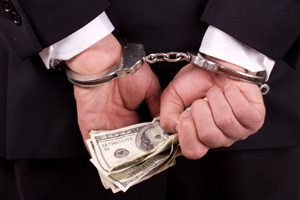
When participating in unregulated gambling or money-related organizations, there is a chance you could find yourself with RICO charges. You might not be sure what went wrong, and you need to understand better what RICO and federal racketeering are. It is also likely that you would struggle to determine what crime applies to your situation. So what is a RICO violation? What crimes fall under the racketeering category? And what penalties might you face if you have been charged?
If you find yourself facing confusing charges, including RICO violations or federal racketeering, allow Rubin, Glickman, Steinberg & Gifford, P.C., to break down everything you need to know. Our team prides itself on supporting its clients through every step of the legal process, and we have served Pennsylvania for over 65 years. We also have access to proven strategies and helpful resources that may be necessary during your legal matters.
What Is a RICO Violation?
Federal racketeering and RICO violations are related to each other, as RICO stands for “Federal Racketeer Influenced and Corrupt Organizations Act” in the United States. RICO was passed in 1970 with the intention of combating organized crime, but the law governs several types of offenses within a pattern of suspected unlawful activity. In fact, racketeering includes up to 35 different crimes.
What Crimes are Considered RICO Violations or Racketeering?
RICO governs a broad spectrum of crimes, but knowing which unlawful behaviors may earn an individual a violation is essential. Any of the following crimes may qualify in the scope of racketeering:
- Gambling
- Bribery
- Extortion
- Mail fraud
- Theft
- Money laundering
- Embezzlement
- Drug trafficking
- Drug possession
- Additional drug-related offenses
- Murder
- Kidnapping
- Burglary
- Arson
- Additional violent crimes
Several other crimes may qualify as RICO violations and earn you a charge, but these are some of the most common. If you receive a charge for federal racketeering but do not see your offense, we may still be able to help. Please get in touch with one of our representatives for more information.
Potential Penalties for RICO Violation Charges
Penalties for RICO violations can be severe. In some cases, fines may rise to $250,000 and you may risk up to 20 years of prison time. Violators may also face additional consequences for their “ill-gotten gains” and other possessions. To avoid the maximum penalties and significantly reduce your potential consequences, we strongly recommend speaking with a lawyer for legal assistance.
Should You Hire a Lawyer?
We recommend that you speak with and retain a lawyer for assistance with your federal racketeering charges, as a RICO violation should be treated with careful attention and dedication. Your attorney may be able to help your case in several ways, including maintaining your schedule, completing and filing paperwork, referring you to helpful specialists and resources, and speaking on your behalf.
We suggest you refrain from representing yourself during your legal matters, as self-representation has several risks. You may misrepresent your case and face more consequences than you might with assistance from an attorney. Try to speak with a lawyer as soon as possible to improve the overall outcome of your case. This will allow your attorney sufficient time to collect evidence and build arguments in your favor.
Charged With Racketeering or RICO Violations in Pennsylvania? Speak With a Lawyer at Rubin, Glickman, Steinberg & Gifford, P.C. Today
If you face federal racketeering or RICO violation charges, you will likely benefit from speaking with a lawyer at Rubin, Glickman, Steinberg & Gifford, P.C. Our lawyers are incredibly talented and highly trusted by their clients. We have a track record of successfully reducing penalties and protecting our clients’ rights.
If you would like to better protect your rights and reduce the consequences you might face, feel free to get in touch with us at your earliest convenience. You can reach us by calling (215) 822-7575 or completing our contact form, whichever you prefer. We are patiently waiting to hear from you and learn more about your case.

Rubin, Glickman, Steinberg & Gifford P.C.
Pennsylvania Attorney's
February 4, 2023









